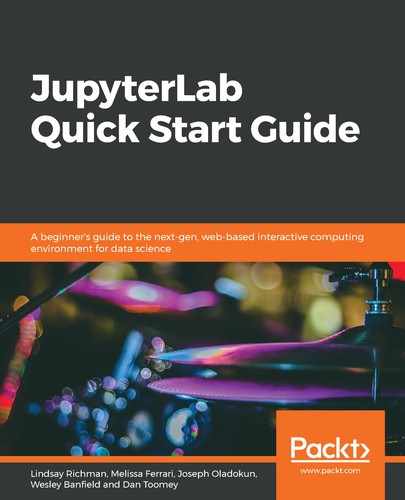Vanilla JupyterLab is comprised of a core application and plugins. The core application is used to store a lookup for commands and the placement of different parts of the UI, as well as some other minor tasks. Everything else in JupyterLab is plugins. A plugin is defined as an object that provides a service or extends the application. One or more plugins bundled together form an extension. JupyterLab extensions may also rely on server extensions to function properly, meaning both a JavaScript package and Python package need to be installed; an example of this is ipywidgets (https://ipywidgets.readthedocs.io/en/latest/).
In this chapter, we will understand that JupyterLab has a modular architecture that's been designed so that each extension has the same privileges. This means custom extensions can do everything core extensions can and customize any part of JupyterLab. We will learn about some common extensions that will provide new themes and custom file readers, new menus, or even renderers for rich cell outputs. Once activated, JupyterLab's extension manager provides a convenient graphical interface for installing and managing extensions with JupyterLab.
In this chapter, we will cover the following topics:
- Managing extensions
- Knowing the useful extensions
- Developing extensions
